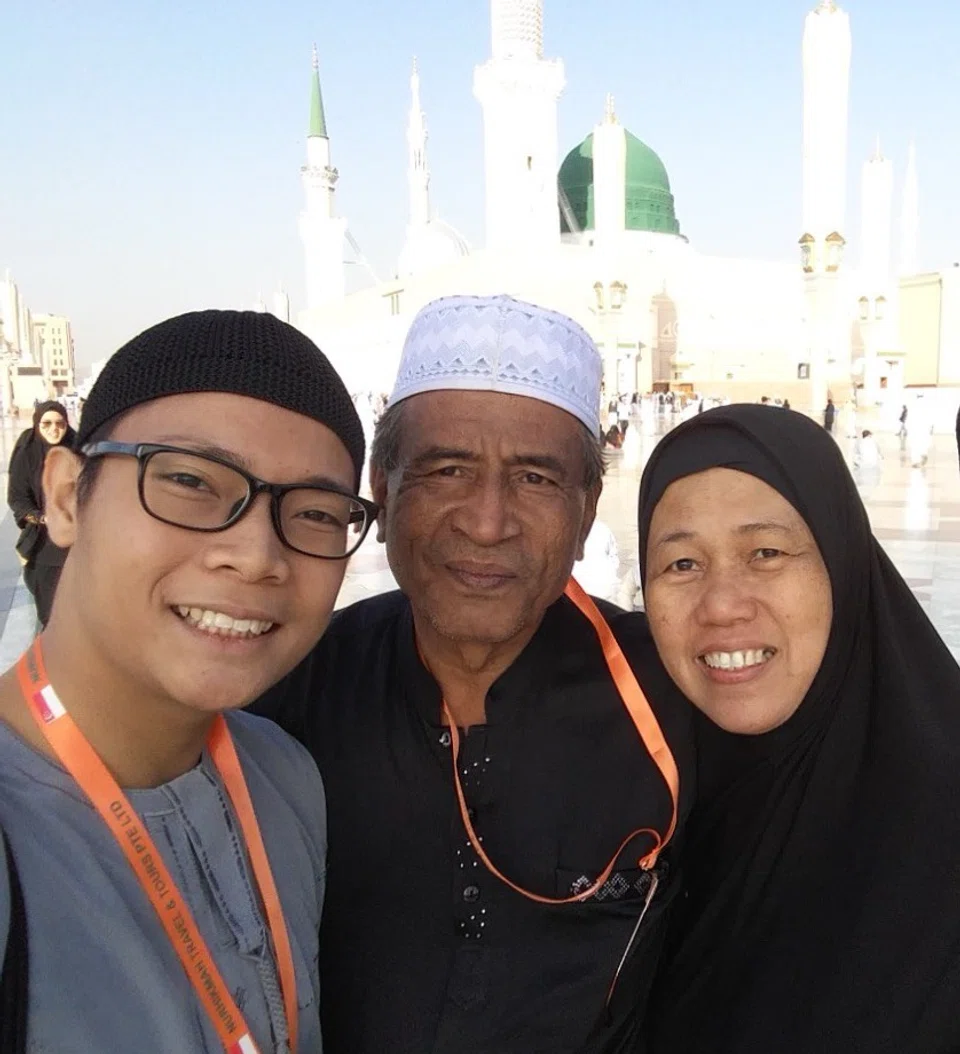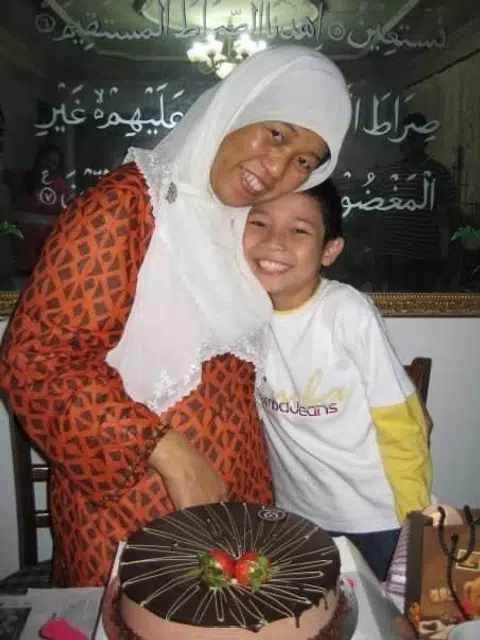Man raised under foster care remembers feeling out of place among his peers
When asked about his childhood, 24-year-old Ahmad Ashrafiqri Kahar Muzakar could not remember much about his family home.
The youngest in a family of six spent a lot of time outside, where he felt safe.
"I only vaguely remember my parents fighting all the time," Mr Ashrafiqri told The New Paper, adding that he felt neglected as a child.
But what he remembers clearly is the day he met his foster parents.
He ran up to them at their first meeting, his four-year-old self eager for attention.
"I asked them: 'Makcik, lawa tak baju Iki pakai?'" (Aunty, is my shirt nice?)
Mr Ashrafiqri is unsure why he was put under foster care but he suspects it's because of his biological parents' financial difficulties.
"My dad was jobless and my mum had to take up odd jobs to feed the family."
His life changed when he was put under the care of Mr Amran Eunos and his wife Maimunah Abdul Rahman.
He felt loved and cared for, describing the day he stepped into his new home as being reborn.
Mr Amran and Madam Maimunah had their foster son's interests at heart and gave him their full support.
When he expressed interest in learning the piano when he was in primary school, the couple contacted their Case Manager to make it a reality.
Doting as they were, Mr Amran and Madam Maimunah set house rules to keep their foster son "grounded" and teach him about boundaries and discipline.
It was a new learning environment for young Ashrafiqri, whose biological parents were totally hands-off with him.

Although he felt well-loved by his foster parents and was accepting of his childhood, Mr Ashrafiqri felt out of place among his peers.
When he was primary school, Mr Amran and Madam Maimunah advised him to avoid disclosing his family background to his friends lest he be judged or bullied.
"I always had an internal debate about whether I should reveal that I was in foster care," said Mr Ashrafiqri.
"When asked about my siblings, I felt confused, unsure if I should talk about my biological or foster siblings."
He tried explaining his situation but grew tired of it as most of his friends then were unaware of the foster care system.
Fostering is a temporary care arrangement to help children in need grow healthily to fulfil their potential. Foster children remain the legal children of their birth parents, and the goal of fostering is to reunite foster children with their birth families once they are assessed to be fit to care for them.
Foster children often carry the weight of trauma - neglect, abuse or exposure to violence - making it hard for them to trust others, regulate their emotions, and form attachments.
PPIS Oasis is one of the five fostering agencies in Singapore, and it offers non-verbal therapy such as art and play for young children who struggle to express their feelings.
As Mr Ashrafiqri grew older, his foster parents took in more foster children. In total, the couple have cared for six other foster children.
Being the oldest child in the super-sized family, Mr Ashrafiqri struggled with the expectations as an older brother to his foster siblings - a reversed role from his place in his birth family.
He grew envious of his younger foster siblings for the attention they received from their foster parents, but Mr Ashrafiqri decided to instead become an exemplary older brother they could look up to.
"There were times when it got too overwhelming and I broke down, but I learnt to be more patient," he said.

After many years of battling with fitting in, Mr Ashrafiqri has now come to accept his unique upbringing: "I always try to look at the brighter side - that I am lucky to have the best of both worlds, which was having two sets of parents."
Looking back at his childhood made him realise that all things happen for a reason, and every experience has shaped him into the person he is today.
Mr Ashrafiqri graduated from Temasek Polytechnic and is serving his National Service with the Singapore Police Force.
"My background has become a source of strength. Not something to hide from, but something that gives hope to others who have similar stories."
He feels that foster children are a vulnerable and neglected group. Many of them come from low socio-economic backgrounds, which can affect their motivation to strive to work hard, and cause them to mix with bad influences after leaving foster care.
"As I grow older, I realise it's no longer about being perfect, but being a purposeful individual," said Mr Ashrafiqri.
"I aspire to show others that their past does not define them in any way."